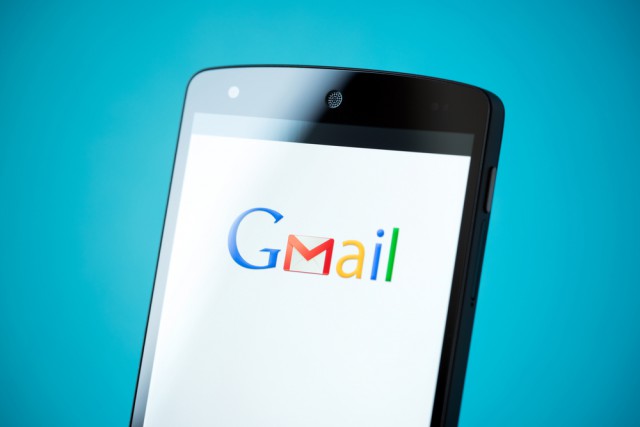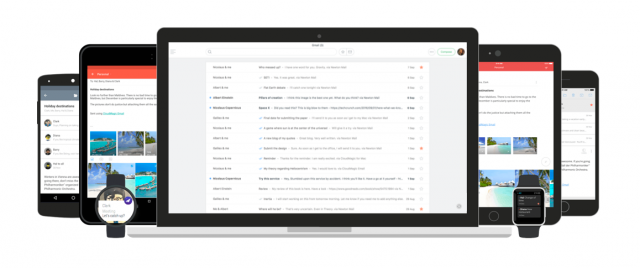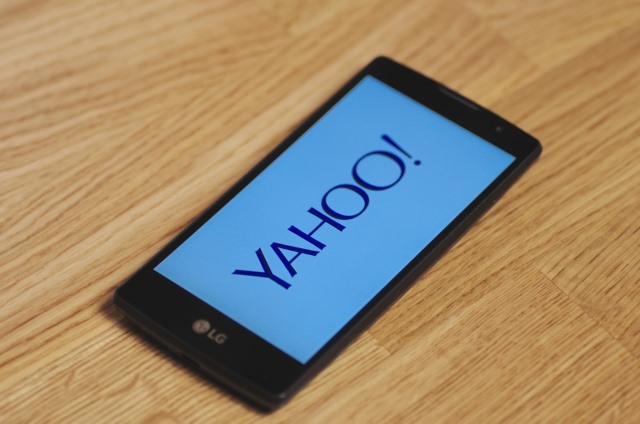
Hacker discovers Gmail vulnerability that leaves any account open to compromise
A student and security researcher from Pakistan has found a serious issue with Gmail that makes it possible for a hacker to take over any email address.
The vulnerability relates to the way Google handles the linking of a primary Gmail account to another email address for the purposes of message forwarding. In just a few steps it was -- before Google fixed the problem -- possible to take over ownership of an email address by tricking the system into sending out the necessary verification code.

FBI reopens investigation into Hillary Clinton's emails
Hillary Clinton may have thought the dust had settled and she was on the home straight to defeating Trump, but the ugly matter of her emails has reared its head again. Today the FBI announces that it is reopening its probe of the presidential candidate, citing the discovery of further emails "that appear pertinent to the investigation".
The emails in question were discovered during an unrelated investigation. No details of what this investigation relates to have been revealed, but the announcement by the FBI comes as a blow to Clinton so late in the election campaign.

Yahoo locks in users by disabling email forwarding to other accounts
Yahoo has had a dramatic fall from grace in the last couple of weeks. While far from the most popular email service out there, it maintains a relatively healthy user base -- but all of this changed with news of a security breach resulting in the theft of 500 million account details, and the revelation that the company secretly scanned emails for the NSA.
While there has not exactly been a mass exodus away from Yahoo, many users have started to question their loyalty to the company and investigate the alternatives. If you are thinking about abandoning Yahoo, the company has put something of an obstacle in the way -- it has disabled email forwarding, saying the feature is now 'under development'.

Yahoo is still vulnerable
The first thing you should do after getting your home or apartment robbed is, obviously, change the lock. Yahoo doesn’t seem to think so, as the same practices that were in place when it got breached are still being used according to a new report by Venafi.
What’s more, its practices have for years been known as unsecure. Venafi puts it simply: if you’re a Yahoo user, you should be worried about this. Here’s what it did (or, didn’t do): most importantly, 27 percent of certificates on external Yahoo sites haven’t been changed since January 2015.

Benchmark report reveals effectiveness of marketing emails
Email is still among the most popular ways of delivering marketing messages to customers, but it can be hard to measure how well it works.
A new study from delivery platform SendGrid measures the engagement numbers for the average percentage of male and female recipients, the percentage of emails that are opened on mobile and non-mobile devices, open rates, click rate, click-to-open rates and monthly send rates across 10 industries.

CloudMagic gets rebranded to Newton, adds subscription-based premium features
Subscriptions can generate a lot of revenue for developers, which is why we are seeing them in so many apps these days. And it is not just new titles that now involve regular payments, as subscriptions are making their way to existing apps as well.
This is now the case with CloudMagic, one of the best -- and my favorite -- cross-platform email apps. It just got an update that changes its name to Newton and adds a number of new, premium features. The latest extras are offered as a rather costly one-year subscription.

Zoho lets salespeople access CRM straight from their inbox
Salespeople spend a lot of their time in communication with customers and prospects, so time spent updating CRM systems can often be seen as unproductive.
Business cloud platform Zoho aims to change that with the launch of its latest CRM product which incorporates SalesInbox, an email client designed exclusively for salespeople.

Email is still king despite the threats it poses
Email is often cited as the technology that made the internet essential for businesses. You would have thought by now that something else would have come along to replace it in our affections, but the popularity of email shows no sign of waning.
A new infographic from email authentication company ValiMail shows that 98.5 percent of people check their email daily and spend as much as six hours doing so.

Judge wants Yahoo to reveal how it recovered deleted emails
Helping out with a drug trafficking case, Yahoo was able to recover emails that had previously been deleted. Now a judge wants to know how this was possible.
Yahoo's only policies state that email cannot be recovered once they have been deleted, and defense lawyers for Russell Knaggs -- who planned to move cocaine from South America -- want to know how the company was able to produce deleted email in this case.

'Happy Birthday' messages drive around 10 percent of email order revenue
Although they account for only two percent of all emails sent, triggered marketing messages -- those sent to mark birthdays and other events -- generate 10.2 percent of email-driven revenue and 9.7 percent of email-driven orders.
This is among the findings of a study by Yes Lifecycle Marketing, the company behind marketing and analytics platform Yesmail360, which shows that people are twice as likely to open triggered messages as they are general marketing emails.

Academics create algorithm that can detect if you're lying in emails
A lie has no legs, the saying goes, but when you’re online, you don’t need legs. You can cruise through the Internet, lying to people free of the little signals which could give you away, such as body language.
This is a topic academics from the Cass Business School tackled, ultimately creating an algorithm that can detect lies in an email. I’m totally serious.

IT pros training CEOs to spot phishing attacks
Out of 300 IT professionals attending the Infosecurity Europe conference, almost half (49 percent) believe their CEO has fallen victim to a targeted phishing attack.
The results have been published in a new paper by unified security management and crowd-sourced threat intelligence company, AlienVault.

First impressions matter in email marketing
We all know that first impressions are important and it seems that the same is true when it comes to email marketing.
According to a survey by email marketing company Campaigner 39 percent of marketers say that the first email content new subscribers see from their brand is a thank-you-for-subscribing message. And those messages work, with almost half reporting that 21 percent or more of new subscribers engage with them.

What you need to know about spear phishing
Unlike spam or phishing emails, which involve a broad and varied range of targets, spear phishing is a highly-targeted email attack against a specific group, organization, or even person.
The main aim of a spear phishing attack is either to obtain unauthorized access to sensitive data, whether this is intellectual property, financial data, trade or military intelligence, or to get the recipient of the email to act on a command, whether this is to transfer money or share confidential data.

Google fails Gmail users with misguided 'Mic Drop' April Fool's prank
As a tech enthusiast, I dread the stupid April Fool's Day every year. What should probably be a fun day for children to pull safe and respectful pranks, has evolved into a day when companies announce fake products. Is it all in good fun? Yes, but some of these companies are publicly traded and worth billions of dollars. It's time to grow up. Some of us are interested in legit news.
One such company, Google, provides services to billions of people -- including some for business use. And so it has a responsibility to its users, and shareholders, to not cause harm with goofy jokes. Today, the search giant does exactly that, however, with a prank called "Mic Drop". In fact, the prank was so misguided, that Google has since pulled it.
